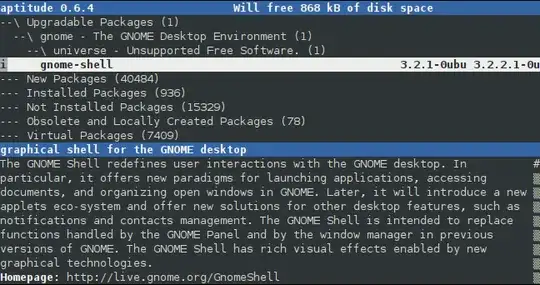FreeBSD user joining your ranks. I've been asked to look after an Ubuntu Server running 10.04 LTS.
I see from /usr/lib/update-notifier/update-motd-updates-available that there are a number of updates on the server however I do not see a way to tell which will be updated.
Would anyone be able to point me in the right direction so as I can see which packages will get updated when I run apt-get upgrade?
UPDATE:
Can't answer my own question at the moment so throwing this in here for the time being:
Along with the apt-get upgrade --dry-run suggested below,
/usr/lib/update-notifier/apt-check -p will list all packages that have updates available.
